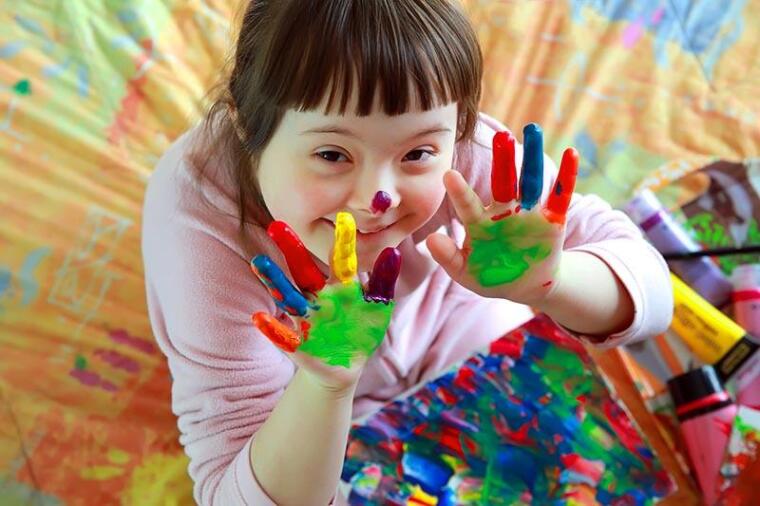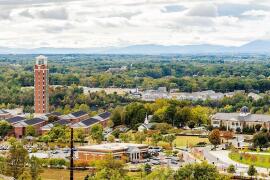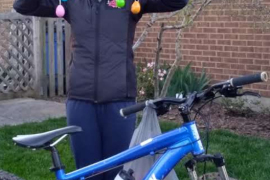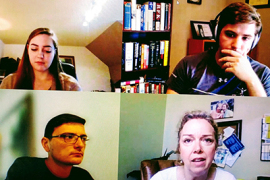Teaching Beyond Boundaries: How Special Education is Equipping the Next Generation

Education is an ever-changing landscape, particularly as new technologies and learning methods are discovered. As the U.S. education system continues to evolve, it’s become clear that there is no “one size fits all” solution when it comes to teaching.
Students come in all shapes and sizes; some are gifted, some are special needs, while others may be visual rather than traditional learners. Because of this, educators today are tasked with utilizing a variety of teaching methods while taking into account the learning style, challenges and needs of each student.
There’s no denying that a teacher’s instruction style can greatly impact a student’s ability to thrive in an academic setting. In fact, a report from the United Nations found that "teacher quality" is the single most important factor in whether or not an educational system succeeds.
But as class sizes continue to swell across the U.S. and the supply of new teachers remains atypically low, students with individual needs can easily be left behind. To combat this problem and better equip the next generation of learners, college students working towards a degree in education should consider specializing in special or gifted education.
Specializing in Gifted Education
The National Association for Gifted Children (NAGC) defines “gifted” children and youth as those who “demonstrate outstanding levels of aptitude (defined as an exceptional ability to reason and learn) or competence (documented performance or achievement in top 10% or rarer) in one or more domains. According to the Office of Civil Rights within the U.S. Department of Education, in 2011-12 there were approximately 3.2 million students in public schools in gifted and talented programs.
However, the National Association for Gifted Children says that federal law offers “no specific provisions, mandates, or requirements for serving these children,” instead making gifted education “a purely local responsibility dependent on local leadership.”
“Unfortunately, leaving gifted education up to chance increases variability in the quality of services and creates inequities of access for students in poverty, from racial and ethnic minority groups, English learners, and those with disabilities,” notes the organization.
Additionally, one report on high-achieving students found that more than 7 in 10 teachers of these students surveyed noted that their brightest students were not challenged or given a chance to “thrive” in their classrooms. Another study found that 88% of high school dropouts had passing grades, but dropped out due to boredom.
Choosing a career in gifted education allows teachers to reach a clearly underserved demographic: students who enjoy academic, creative, and cognitive challenges.
Yet the benefits of gifted programs cannot be underestimated; four-fifths (81%) of teachers said they believe that “our advanced students need special attention – they are the future leaders of this country, and their talents will enable us to compete in a global economy.” (High Achieving Students in the Era of NCLB).
Gifted education teachers, particularly those who hold advanced degrees in gifted education, are well-trained in various strategies to meet the unique pace of each individual student. For example, such educators are not limited to the traditional classroom — instead, they are prepared to teach in a variety of learning environments.
Carol Ann Tomlinson, Ed.D, The University of Virginia, puts it this way: “[Gifted learners] need learning experiences that are organized by key concepts and principles of a discipline rather than by facts. They need content that is relevant to their lives, activities that cause them to process important ideas at a high level, and products that cause them to grapple with meaningful problems and pose defensible solutions. They need classrooms that are respectful to them, provide both structure and choice, and help them achieve more than they thought they could.”
Gifted education teachers have the rewarding task of helping students develop the self-discipline, integrity, productivity, and leadership skills needed to thrive in the academic setting and beyond.
Specializing in Special Education
The definition of “special education” is a “form of learning provided to students with exceptional needs, such as students with learning disabilities or mental challenges.” In 2015–16, the number of students ages 3–21 receiving special education services was 6.7 million, or 13 percent of all public school students. Among students receiving special education services, 34 percent had specific learning disabilities.
Every year, these statistics increase, prompting one report to note that “The need for teachers who have both the knowledge and the ability to teach special-education students is more critical today than ever before.”
However, studies found that training programs are doing little to prepare teachers to meet this growing need. A 2009 study reported that no one shows general education teachers how to teach to “different needs," and due to time constraints and a lack of support, “teachers are not only hesitant to implement individualized instruction, but they do not even know how to do so.”
On the other hand, teachers who earn an advanced degree (M.Ed. or M.A.T.) in special education gain the skills and training necessary to help those with learning disabilities thrive both in an academic setting and in the outside world. In fact, research shows as many as 85 percent of students with disabilities can master general-education content if they receive educational support.
Special needs class sizes may be smaller than regular classrooms, giving teachers the time and support to provide a high-quality education based on a student’s needs. Additionally, because these students have a variety of needs and learning styles, teachers are given the flexibility to adjust their methods according to the individual.
There’s no denying that special education teachers have a difficult job; in addition to teaching a curriculum, educators also must address the emotional and behavioral needs that arise in their students. However, special education is also one of the most rewarding, exciting, and character-building careers available. Special education teachers not only help students succeed in an academic setting, but they also give them the tools to absorb information and interpret their surroundings in a way they can understand.
Psychologist Howard Gardner once said, “The biggest mistake of past centuries in teaching has been to treat all children as if they were variants of the same individual, and thus to feel justified in teaching them the same subjects in the same ways.” Instead of employing a one-size-fits-all method, teachers who specialize in gifted or special education have the training and support to tailor their teaching styles to meet the needs of individual students. Such teachers are able to positively impact student learning and better equip the next generation for success.
>>>Request for Liberty University Online degree info now.






